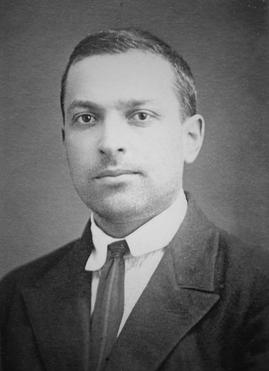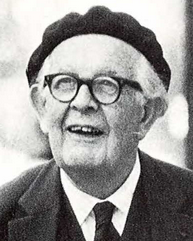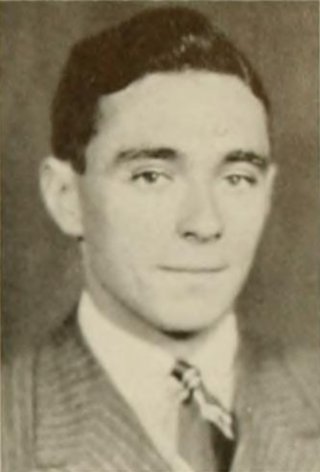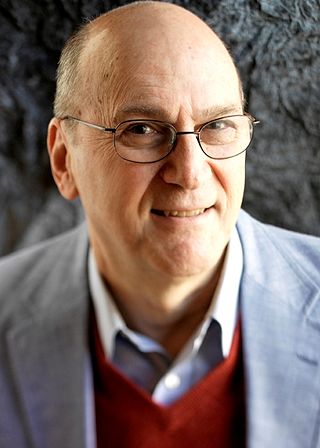David Elkind (born March 11, 1931) is an American child psychologist and author.
David Elkind (born March 11, 1931) is an American child psychologist and author.
Elkind and his family relocated to California when he was a teenager. He studied at the University of California at Los Angeles and obtained a Bachelor of Arts degree in 1952 and Doctorate in Philosophy in 1955. David also earned an honorary Doctorate in Science at the Rhode Island College in 1987.
A professor at Tufts University, his books —The Hurried Child, The Power of Play and Miseducation — informed early childhood education professionals of the possible dangers of incorporating elementary school curriculum into the very early years of a child's life. [1] By doing so, he argued, teachers and parents alike could lapse into developmentally inappropriate instructional and learning practices that may distort the smooth development of learning. He is associated with the belief of decline of social markers. [2]
David Elkind is professor emeritus of Child Development at Tufts University [3] in Medford, Massachusetts. He was formerly professor of Psychology, Psychiatry and Education at the University of Rochester.
Elkind obtained his doctorate at UCLA and then spent a year as David Rapaport's research assistant at the Austen Riggs Center in Stockbridge, Massachusetts. In 1964–65 he was a National Science Foundation Senior Postdoctoral Fellow at Piaget's Institut d'Epistemologie Genetique in Geneva. His research has been in the areas of perceptual, cognitive and social development where he has attempted to build upon the research and theory of Jean Piaget.
Elkind is on the editorial board of a number of scientific journals, and is a consultant to state education departments as well as to government agencies and private foundations. [4] He lectures regularly in the United States, Canada and abroad. He has appeared on The Today Show, The CBS Morning News, Twenty/Twenty, Nightline, Donahue, and The Oprah Winfrey Show. He has been profiled in People and Boston Magazine. Elkind co-hosted the Lifetime television series, Kids These Days. He is past president of the National Association for the Education of Young Children.
Elkind's bibliography now numbers close to 500 items and includes research, theoretical articles, book chapters and eighteen books. In addition he has published more popular pieces such as children's stories in Jack and Jill, biographies of famous psychologists in the New York Times Magazine, as well as presentations of his own work in Good Housekeeping, Parade and Psychology Today. Some of his recent articles include "Computers and Young Children," "The Authority of the Brain," "The Cosmopolitan School," "On Becoming a Grandfather," and "Thanks for the Memory: The Lasting Value of True Play."
Elkind is known for his books, The Hurried Child, The Power of Play, All Grown Up and No Place to Go, and Miseducation. Grandparenting: Understanding Today's Children was published in November 1989. Parenting Your Teenager and three additional books, Images of the Young Child; Understanding Your Child and a third edition of A Sympathetic Understanding of the Child: Birth to Sixteen appeared in 1993. Ties That Stress: The New Family Imbalance was published in 1994. A second edition of All Grown Up and No Place to Go and Reinventing Childhood: Raising and Educating Children in a Changing World appeared in 1998. A third edition of The Hurried Child came out 2001 and the 25th anniversary edition was published in 2007 along with his newest book The Power of Play: Learning What Comes Naturally.
Elkind was a contributing editor to Parents Magazine.
Elkind is married to Debbie Elkind, lives on Cape Cod, and has three sons and four grandchildren.

Developmental psychology is the scientific study of how and why humans grow, change, and adapt across the course of their lives. Originally concerned with infants and children, the field has expanded to include adolescence, adult development, aging, and the entire lifespan. Developmental psychologists aim to explain how thinking, feeling, and behaviors change throughout life. This field examines change across three major dimensions, which are physical development, cognitive development, and social emotional development. Within these three dimensions are a broad range of topics including motor skills, executive functions, moral understanding, language acquisition, social change, personality, emotional development, self-concept, and identity formation.
Educational psychology is the branch of psychology concerned with the scientific study of human learning. The study of learning processes, from both cognitive and behavioral perspectives, allows researchers to understand individual differences in intelligence, cognitive development, affect, motivation, self-regulation, and self-concept, as well as their role in learning. The field of educational psychology relies heavily on quantitative methods, including testing and measurement, to enhance educational activities related to instructional design, classroom management, and assessment, which serve to facilitate learning processes in various educational settings across the lifespan.

Lev Semyonovich Vygotsky was a Russian and Soviet psychologist, best known for his work on psychological development in children and creating the framework known as cultural-historical activity theory. After his early death, his books and research were banned in the Soviet Union until Joseph Stalin's death in 1953, with a first collection of major texts published in 1956.

Jean William Fritz Piaget was a Swiss psychologist known for his work on child development. Piaget's theory of cognitive development and epistemological view are together called genetic epistemology.
Lawrence Kohlberg was an American psychologist best known for his theory of stages of moral development.

Jerome Seymour Bruner was an American psychologist who made significant contributions to human cognitive psychology and cognitive learning theory in educational psychology. Bruner was a senior research fellow at the New York University School of Law. He received a BA in 1937 from Duke University and a PhD from Harvard University in 1941. He taught and did research at Harvard University, the University of Oxford, and New York University. A Review of General Psychology survey, published in 2002, ranked Bruner as the 28th most cited psychologist of the 20th century.
Benjamin Samuel Bloom was an American educational psychologist who made contributions to the classification of educational objectives and to the theory of mastery learning. He is particularly noted for leading educational psychologists to develop the comprehensive system of describing and assessing educational outcomes in the mid-1950s. He has influenced the practices and philosophies of educators around the world from the latter part of the twentieth century.

Piaget's theory of cognitive development, or his genetic epistemology, is a comprehensive theory about the nature and development of human intelligence. It was originated by the Swiss developmental psychologist Jean Piaget (1896–1980). The theory deals with the nature of knowledge itself and how humans gradually come to acquire, construct, and use it. Piaget's theory is mainly known as a developmental stage theory.

Egocentrism refers to difficulty differentiating between self and other. More specifically, it is difficulty in accurately perceiving and understanding perspectives other than one's own. Egocentrism is found across the life span: in infancy, early childhood, adolescence, and adulthood. Although egocentric behaviors are less prominent in adulthood, the existence of some forms of egocentrism in adulthood indicates that overcoming egocentrism may be a lifelong development that never achieves completion. Adults appear to be less egocentric than children because they are faster to correct from an initially egocentric perspective than children, not because they are less likely to initially adopt an egocentric perspective.
John Hurley Flavell is an American developmental psychologist specializing in children's cognitive development who serves as Anne T. and Robert M. Bass Professor, Emeritus at Stanford University. A foundational researcher of metacognition and metamemory, he is a member of both the National Academy of Sciences and the American Academy of Arts and Sciences.
Zdeněk Matějček was a Czech child psychologist, researcher, and childcare reformer, who pioneered the study of the institutional conditions of raising children in an environment of psychological deprivation. He was a significant reformer of child care, emphasising the irreplaceable role of the family. He was known for studies of the effects on children of being held in prison camps during World War II, was a co-founder and the first chairman of an association that involved animals, such as dogs and horses, in child therapy, and was the principal organizer of a meeting of the International Association for Research in Learning Disabilities, held in Prague on October 2–5, 1989. He placed 93rd on Největší Čech.
Bärbel Elisabeth Inhelder (15 April 1913 – 17 February 1997) was a Swiss psychologist most known for her work under psychologist and epistemologist Jean Piaget and their contributions toward child development.

Kenneth Kaye was an American psychologist and writer whose research, books, and articles connect the fields of human development, family relationships and conflict resolution.

Hans Gerhard Fürth or Hans G. Furth was a Professor emeritus in the Faculty of Psychology of the Catholic University of America in Washington, D.C.
Katherine Nelson was an American developmental psychologist, and professor.
Eleanor Emmons Maccoby was an American psychologist who was most recognized for her research and scholarly contributions to the fields of gender studies and developmental psychology. Throughout her career she studied sex differences, gender development, gender differentiation, parent-child relations, child development, and social development from the child perspective.
Gary B. Mesibov is a licensed psychologist, psychology professor, editor and an author.

Juan Pascual-Leone is a developmental psychologist and founder of the neo-Piagetian approach to cognitive development. He introduced this term into the literature and put forward key predictions about developmental growth of mental attention and working memory.

Edith K. Ackermann was a Swiss-born American psychologist who explored the interactions between developmental psychology, play, learning and design. A graduate of the University of Geneva, and a protege to Jean Piaget, she held permanent and visiting positions at several institutions in the United States and Europe, including the MIT Media Lab.

Geoffrey B. Saxe is an American developmental psychologist. He is a Distinguished Professor of the Graduate School in the School of Education at UC Berkeley. He is a former President of the Jean Piaget Society for the Study of Knowledge and Development, elected member of the National Academy of Education, elected fellow of the American Educational Research Association, and former Editor-in-Chief of the international journal, Human Development.